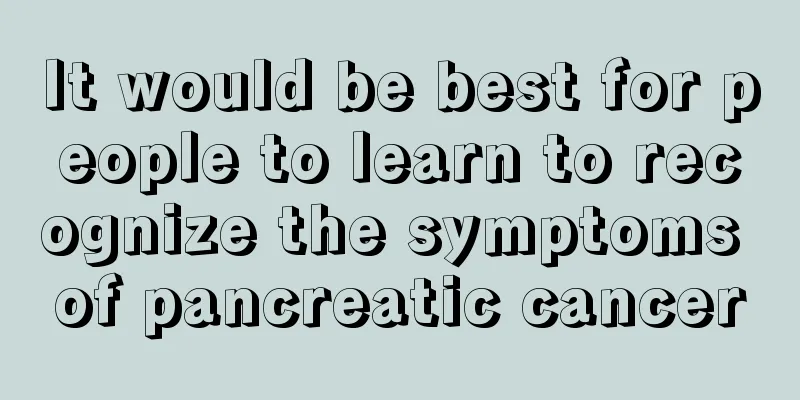Symptoms of heart failure

|
Currently, heart failure is one of the most common heart diseases. The causes of heart failure are more complicated. In addition to being related to heart diseases such as myocardial infarction, it is also related to long-term hypertension and even chronic diseases such as myocarditis. In addition, the symptoms of heart failure should not be ignored, otherwise it may easily lead to life-threatening situations. So what are the symptoms of heart failure? In fact, the symptoms of heart failure are quite obvious. Most patients have experienced shortness of breath, or even a long-term feeling of pressure in the chest, which leads to breathing difficulties or even inability to breathe normally. In addition, there are obvious arrhythmias and abnormal heartbeats. Below is a detailed introduction to the symptoms of heart failure. Symptoms of heart failure 1. Shortness of breath Feeling like you can't take a deep breath or you're gasping for breath when you wake up in the middle of the night or in the morning. Especially when exerting force or lying down, there is a sense of pressure in the chest and it is impossible to breathe deeply. The only way to catch your breath is to sit up. 2. Heaviness or "sinking feeling" in the chest This is the first symptom of heart failure. However, when this feeling first occurs, many patients do not know how to deal with it, and it is difficult to describe this abnormal feeling. Many patients experience a heavy pressure on their chest, similar to a “drowning” sensation. 3. Clothes and shoes feel too tight Tight clothes and shoes and puffiness are signs of edema, which is one of the early symptoms of heart failure but is often difficult to recognize. 4. Palpitations or irregular heartbeats Rapid heartbeat, irregular heartbeat, and palpitations are common symptoms of heart failure. The patient will feel that his heart is beating too fast and too hard, often accompanied by a panic-like feeling of tension. 5. Loss of appetite Feeling full long after a meal, which may be accompanied by nausea, constipation, stomach discomfort, or abdominal pain. There is a feeling of pressure in the chest and abdomen, and discomfort after eating. Fatigue can also cause heart failure patients to lose their appetite and feel tired even when chewing food. 6. Dizziness Dizziness or lightheadedness is the most common problem with heart failure, with patients feeling as if the world is spinning. Common complications include nausea or motion sickness. If accompanied by palpitations or irregular heartbeat, seek medical attention immediately. 7. Anxiety Shortness of breath, racing thoughts, sweaty palms, and a racing heartbeat are all signs of anxiety. Some patients may mistake anxiety or stress as the main cause and ignore heart failure. 8. Cough Cough is also a major symptom of heart failure, but it is easy to be confused with the flu or common cold. Heart failure-related coughs rarely occur in the throat like cold coughs. Sometimes white foam or thick sputum may be coughed up, and may contain blood. 9. You get tired easily or feel weak all the time During or after exertion, the patient becomes breathless or has difficulty breathing. Walking, standing up or eating a meal can make people with heart failure feel tired. Symptoms of heart failure include an irregular heartbeat, especially a sudden and rapid heartbeat, and a panic-like feeling of tension. In addition, you will feel that the whole world is spinning, and you may even experience nausea, vomiting, etc. They are also more prone to fatigue than ordinary people, and even eating and walking seem extremely difficult. Therefore, if you have suspected symptoms and phenomena such as heart failure, you should seek medical attention and treatment in time, otherwise the disease may worsen and cause irreversible consequences. |
>>: Causes of high blood pressure
Recommend
Does vitamin D promote calcium absorption?
Vitamin D is a nutrient that is of great signific...
What are the treatments for thyroid cancer without removal?
Non-resection methods for thyroid cancer usually ...
What are the symptoms of bladder cancer?
Bladder cancer is a disease with a very high inci...
What are the benefits of ivory to the human body
Elephants are large animals with a pair of very d...
Is viral chickenpox contagious?
Varicella is actually a disease caused by the her...
What are the folk remedies for treating advanced lung cancer? I recommend several folk remedies for treating advanced lung cancer
Lung cancer is a common cancer. This malignant tu...
How do patients with advanced bone cancer exercise?
Physical rehabilitation exercises play a very imp...
Main nursing issues for pancreatic cancer
At present, the treatment effect of pancreatic ca...
Can spanking your wrist help detoxify?
Hitting the wrist can generally detoxify and has ...
Can folliculitis cause skin cancer?
Skin cancer is extremely harmful to people's ...
What to do if the skin turns yellow due to liver disease
Liver disease is a disease that occurs in the liv...
What is silicone oil and what are the hazards
Silicone oil has a wide range of uses and is used...
What is the cure rate of pituitary tumors
With the continuous development of medicine, ther...
Why does thyroid cancer cause slow reaction?
Thyroid cancer is a common endocrine tumor in cli...
What are the symptoms of dizziness and vomiting?
Dizziness and vomiting are relatively common phen...









